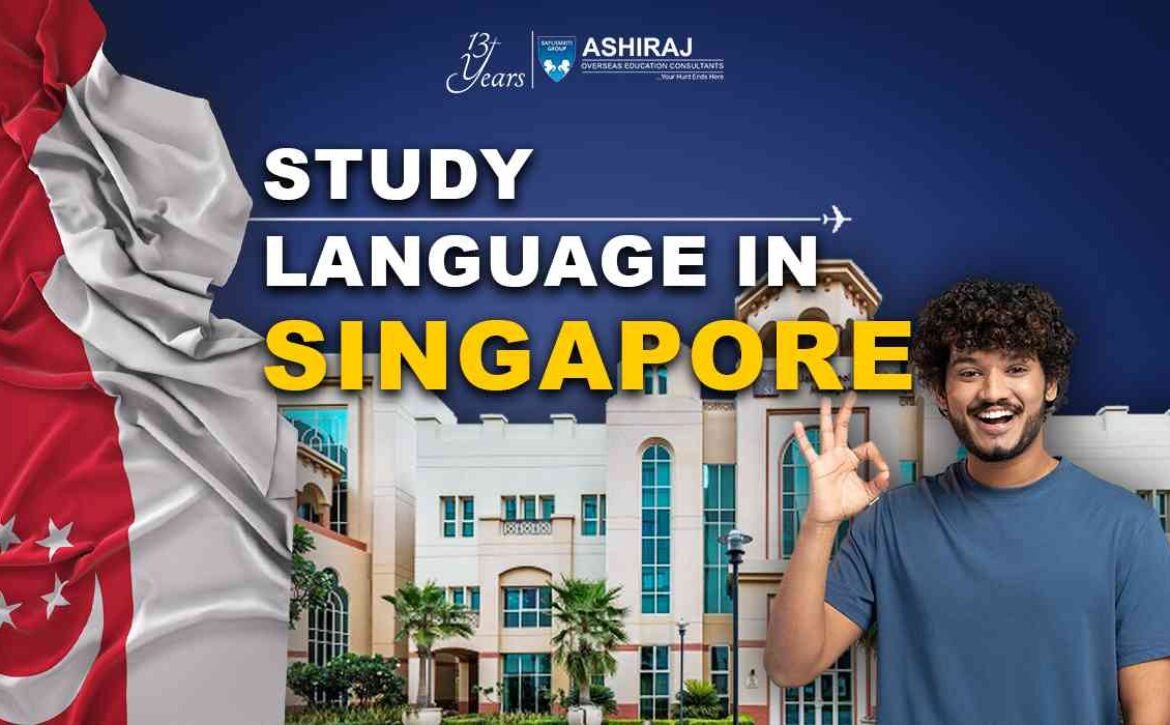
Language in Singapore
Language in Singapore is a vibrant tapestry woven from a multitude of tongues, reflecting the rich cultural diversity of this island nation. With its unique history shaped by waves of migration and colonization, Singapore has evolved into a melting pot where languages intertwine and coalesce. The official languages, English, Mandarin Chinese, Malay, and Tamil, form the backbone of communication, embodying Singapore’s commitment to multilingualism and multiculturalism. Beyond these official languages, numerous dialects and creoles further enrich the linguistic landscape, offering a glimpse into the intricate social fabric of Singaporean society.
In Singapore, language serves as more than just a means of communication; it is a symbol of identity and heritage. The dynamic interplay between different languages mirrors the nation’s ongoing journey towards unity amidst diversity. From the colloquial Singlish, a blend of English, Malay, Mandarin, and dialects, to the eloquent expressions of literary works in various languages, Singaporean language encapsulates the essence of cultural fusion and resilience. Amidst globalization and rapid societal changes, understanding the complexities of language in Singapore is essential for unraveling the nuances of its diverse communities and embracing its unique linguistic tapestry.
Why to Study Language in Singapore?
- Multicultural Environment: Singapore boasts a diverse population comprising people from various ethnic backgrounds. Studying language here provides an immersive experience in a multicultural environment, allowing learners to interact with speakers of different languages on a daily basis.
- Gateway to Asia: As a hub of trade and commerce in Asia, Singapore offers ample opportunities for language learners to engage with businesses, organizations, and communities across the region. Proficiency in languages such as Mandarin Chinese, Malay, Tamil, or even Singlish can open doors to a wide range of career prospects in Asia.
- Academic Excellence: Singapore is renowned for its high-quality education system. The country’s universities and language schools provide top-notch language education, backed by rigorous academic standards and innovative teaching methods.
- Cultural Immersion: Language study in Singapore goes beyond mere linguistic proficiency; it offers a chance to immerse oneself in the rich cultural tapestry of the nation. From traditional festivals to contemporary arts, students can explore diverse cultural expressions firsthand.
- Global Connectivity: With English as one of its official languages, studying language in Singapore offers a global advantage. Proficiency in English, coupled with exposure to other languages, enhances one’s ability to communicate effectively in today’s interconnected world.
In conclusion, studying language in Singapore offers a unique blend of cultural immersion, academic excellence, and global connectivity, making it an ideal destination for language learners seeking a truly enriching experience.
Top Universities to Study Language in Singapore
University | QS World University Rankings 2023 | Type of University | Average Annual Fees | Programs Offered |
National University of Singapore (NUS) | 11 | Public | SGD 30,000 – 40,000 | Linguistics, Translation Studies, Asian Languages |
Nanyang Technological University (NTU) | 13 | Public | SGD 25,000 – 35,000 | Language Studies, Communication Studies, Applied Linguistics |
Singapore Management University (SMU) | 46 | Private | SGD 40,000 – 50,000 | Language and Society, Intercultural Communication, Language Education |
Singapore University of Social Sciences (SUSS) | Not Ranked | Public | SGD 20,000 – 30,000 | Language and Literature, Language Policy and Planning |
SIM Global Education | Not Ranked | Private | SGD 15,000 – 25,000 | English Language, Business Communication, Foreign Languages |
Language in Singapore is a multifaceted aspect, and studying it in one of Singapore’s top universities offers unparalleled opportunities for academic excellence and cultural immersion. The table above showcases the top five universities in Singapore for language studies, along with their QS World University Rankings for 2023, type of university, average annual fees, and the programs they offer. These universities provide a diverse range of programs, including linguistics, translation studies, Asian languages, communication studies, and language education, catering to the varied interests and career aspirations of language enthusiasts. Whether it’s delving into the intricacies of linguistic theory or exploring the socio-cultural aspects of language in society, studying language in Singapore offers a rich and rewarding educational experience amidst a dynamic and multicultural environment.
Course Curriculum for Language in Singapore
- Comprehensive Language Proficiency: The curriculum focuses on developing proficiency in languages such as English, Mandarin Chinese, Malay, Tamil, and other regional dialects to navigate Singapore’s multicultural society effectively.
- Linguistic Theory and Analysis: Students delve into the study of linguistic theory, phonetics, syntax, semantics, and pragmatics to gain a deeper understanding of language structure and usage.
- Translation and Interpretation: The curriculum includes modules on translation and interpretation techniques, preparing students to bridge linguistic and cultural gaps in diverse contexts.
- Cultural Context: Courses explore the cultural contexts surrounding languages, providing insights into the historical, social, and political factors influencing language use in Singapore.
- Applied Language Studies: Students engage in practical applications of language through projects, case studies, and fieldwork, honing their language skills in real-world scenarios.
- Technology Integration: The curriculum incorporates technology-enhanced learning tools and resources to facilitate language acquisition and practice, keeping pace with digital advancements in language education.
- Multilingual Communication Skills: Emphasis is placed on developing multilingual communication skills, including writing, speaking, listening, and reading, to foster effective intercultural communication within Singapore’s diverse society.
- Professional Development: The curriculum may include modules on language teaching methodologies, professional communication, and intercultural competence, preparing students for careers in language education, translation, interpretation, and cross-cultural communication.
The course curriculum of Language in Singapore is designed to provide students with a comprehensive understanding of language structure, usage, and cultural contexts, equipping them with the skills and knowledge to thrive in a multicultural and multilingual society like Singapore.
Eligibility Criteria & Admission Requirements for MS in Language in Singapore
- IELTS or TOEFL Scores: Applicants must demonstrate proficiency in English by providing either IELTS or TOEFL scores. For IELTS, a minimum overall band score of 6.5 is typically required, while for TOEFL, a score of 90 or above is preferred.
- GRE or GMAT Scores: Depending on the program, applicants may need to submit GRE or GMAT scores. GRE scores of around 320 (combined verbal and quantitative) are usually expected, while GMAT scores of 650 or higher are desirable.
- Passport & Student Visa: International students must possess a valid passport and obtain a student visa to study in Singapore. Visa requirements vary depending on the student’s nationality and the duration of the intended study program.
- Academic Certificates: Applicants are required to submit academic certificates, including transcripts and diplomas, to demonstrate their educational qualifications. These documents may need to be evaluated by recognized authorities for equivalency if obtained from institutions outside Singapore.
- Work Experience: Some language programs may require applicants to have relevant work experience in the field of linguistics, language education, translation, or related areas. Work experience can enhance an applicant’s profile and demonstrate practical knowledge in the field.
Table: Required Scores for Language Programs
Test | Minimum Score |
IELTS | 6.5 |
TOEFL | 90 |
GRE | 320 |
GMAT | 650 |
The eligibility criteria for Language in Singapore encompass various aspects, including language proficiency, academic qualifications, and relevant experience, ensuring that students are equipped to succeed in their chosen language programs. Meeting these requirements opens doors to a diverse range of opportunities for personal and professional growth in Singapore’s vibrant linguistic landscape.
Documents Required for Studying Language in Singapore
- Passport: A valid passport is essential for international students applying to language programs in Singapore, serving as proof of identity and nationality.
- Two Letters of Recommendation (LOR): Applicants are typically required to submit two LORs from academic or professional references attesting to their character, abilities, and suitability for the program.
- Statement of Purpose (SOP): An SOP outlines the applicant’s motivations, academic background, career goals, and reasons for choosing the specific language program in Singapore.
- Curriculum Vitae (CV): A comprehensive CV or resume detailing the applicant’s educational qualifications, work experience, skills, achievements, and extracurricular activities.
- Official High School Transcripts: Transcripts from the applicant’s high school or secondary education institution are necessary to assess academic performance and eligibility for language programs.
- Educational Certificates: Copies of educational certificates, including diplomas, degrees, and any relevant language proficiency certifications, must be provided as part of the application process.
- Work Experience Certificate: If applicable, a work experience certificate demonstrating relevant professional experience in linguistics, language education, translation, or related fields may be required.
- Proof of Financial Resources: Applicants must furnish evidence of sufficient financial resources to cover tuition fees, living expenses, and other costs associated with studying language in Singapore.
Ensuring the timely submission of these documents is crucial for a smooth application process and admission to language programs in Singapore, offering students the opportunity to immerse themselves in the rich linguistic landscape of the city-state.
Admission Process for Language in Singapore
- Research Programs: Begin by researching language programs offered by universities or language schools in Singapore. Consider factors such as program duration, curriculum, faculty expertise, and facilities.
- Check Eligibility: Review the eligibility criteria for each program, including language proficiency requirements, academic qualifications, and any specific prerequisites.
- Prepare Documents: Gather required documents such as passport, educational certificates, transcripts, CV, SOP, LORs, and proof of financial resources. Ensure all documents are accurate and up-to-date.
- Submit Application: Complete the online application form for your chosen language program, providing all necessary information and uploading supporting documents as per the institution’s guidelines.
- Language Proficiency Test: Take the required language proficiency test (e.g., IELTS or TOEFL) and submit your scores along with the application.
- Wait for Response: After submitting your application, wait for the institution to review your materials. This process may take several weeks, so be patient.
- Interview (if required): Some programs may require an interview as part of the admissions process. Prepare for the interview by researching the program and practicing potential questions.
- Receive Admission Decision: Once the institution has reviewed your application, you will receive an admission decision. If accepted, follow the instructions provided for enrollment and visa application.
Following these steps diligently will enhance your chances of successfully gaining admission to a language program in Singapore, allowing you to embark on a rewarding journey of linguistic and cultural exploration in the vibrant city-state.
“Education is the most powerful weapon which you can use to change the world.”
Nelson Mandela
Cost of Language Course in Singapore
- Tuition Fees: The cost of language programs in Singapore varies depending on the institution, program duration, and level of study. On average, tuition fees for language courses range from SGD 3,000 to SGD 10,000 per year.
- Living Expenses: Singapore is known for its relatively high cost of living, including accommodation, food, transportation, and other daily expenses. Budgeting for accommodation, meals, transportation, and personal expenses is essential for students studying language in Singapore.
- Additional Costs: Additional expenses may include study materials, textbooks, course materials, extracurricular activities, health insurance, visa fees, and other miscellaneous costs.
- Scholarships and Financial Aid: Some institutions in Singapore offer scholarships, grants, or financial aid to eligible students to help offset the cost of studying language. It’s advisable to research and apply for available scholarships or financial assistance programs.
- Part-time Work Opportunities: International students in Singapore are allowed to work part-time during their studies. Part-time work can help supplement income and cover some expenses associated with studying language in Singapore.
Understanding the cost of studying language in Singapore is essential for prospective students to make informed decisions and plan their finances accordingly. By budgeting wisely and exploring financial aid options, students can manage the cost of language education while enjoying the enriching experience of studying in Singapore.
Scholarships for Language Courses in Singapore
Scholarship Name | Amount | Application Deadline |
Singapore International Graduate Award (SINGA) | Full tuition fees, monthly stipend, and other benefits | December 1st (Annually) |
NUS Graduate School for Integrative Sciences and Engineering (NGS) Scholarships | Full tuition fees, monthly stipend, and other allowances | Various (Check website for specific deadlines) |
NTU Research Scholarship | Full tuition fees, monthly stipend, and other benefits | Various (Check website for specific deadlines) |
Singapore Government Scholarships | Full or partial tuition fees, monthly stipend, and other allowances | Various (Check website for specific deadlines) |
Lee Kong Chian Graduate Scholarships | Full tuition fees, monthly stipend, and other benefits | Various (Check website for specific deadlines) |
Scholarships for language in Singapore offer financial support to deserving students pursuing language studies in the country. These scholarships cover full or partial tuition fees, monthly stipends, and other allowances, making language education more accessible to students from diverse backgrounds. Application deadlines vary depending on the scholarship, so applicants are encouraged to check the respective websites for specific details and deadlines. By availing these scholarships, students can pursue their language studies in Singapore with financial peace of mind, focusing on academic excellence and cultural immersion in this dynamic and multicultural environment.
Career Opportunities After Language in Singapore
Job Profile | Average Salary (SGD) |
Translator/Interpreter | 40,000 – 80,000 |
Language Teacher/Tutor | 30,000 – 60,000 |
Content Writer/Editor | 35,000 – 70,000 |
Language Specialist | 45,000 – 90,000 |
Intercultural Communication Consultant | 50,000 – 100,000 |
Language in Singapore opens up a plethora of career opportunities for individuals proficient in multiple languages. From traditional roles like translators and language teachers to emerging positions such as content writers and intercultural communication consultants, the job market offers diverse avenues for language enthusiasts. With Singapore’s status as a global business hub and its multicultural society, language specialists are in high demand across various industries. These professionals command competitive salaries, with average earnings ranging from SGD 30,000 to SGD 100,000 annually. Pursuing a career in language-related fields not only offers financial stability but also provides opportunities for personal and professional growth in Singapore’s dynamic and cosmopolitan environment.
Frequently Asked Questions About Language in Singapore
The official languages of Singapore are English, Mandarin Chinese, Malay, and Tamil.
Yes, Singapore offers language programs covering a wide range of languages, including English, Mandarin, Malay, Tamil, and various foreign languages.
Yes, there are scholarships available for language studies in Singapore, offered by universities, government agencies, and other organizations. These scholarships often cover tuition fees, living expenses, and other allowances.
The cost of studying language in Singapore varies depending on the institution, program duration, and level of study. On average, tuition fees range from SGD 3,000 to SGD 10,000 per year.
Yes, many language programs in Singapore require applicants to demonstrate proficiency in English by providing IELTS or TOEFL scores.
Yes, there are numerous job opportunities for language graduates in Singapore, including roles such as translators, language teachers, content writers, and intercultural communication consultants.
Yes, international students in Singapore are allowed to work part-time during their studies, subject to certain restrictions and regulations.
The duration of language programs in Singapore varies depending on the level of study and the specific program. It can range from a few months to several years.
Singapore boasts a diverse language environment, with people speaking a variety of languages and dialects due to its multicultural population.
Yes, studying language in Singapore provides ample opportunities for cultural immersion through interactions with people from diverse cultural backgrounds, participation in cultural events, and exploration of the city’s rich heritage sites.




